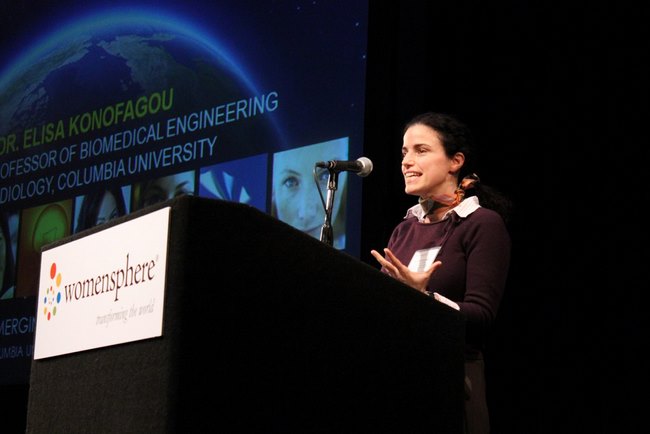
Stories Talk | Presentation Skills and Effective Storytelling
Stories Talk | Presentation Skills and Effective Storytelling
By Alexandros Theodoropoulos
The successful operation on an elderly woman with Alzheimer's in New York paves the way for this new method that will be applied to patients with incurable neurological diseases such as Parkinson's, to heart arrhythmias, but also to the treatment of breast cancer.
Led by the university professor Elisa Konofagou, the team of scientists managed after 15 years of intensive research and application in experimental animals to prove the safety of the method as well as the therapeutic possibilities it offers in various fields.
After graduating from the Varvakeio School, Elisa Konofagou studied Physical Chemistry at the Universite de Paris VI and received a Master's Degree in Biomedical Engineering at Imperial College London. She later earned a Ph.D. in Biomedical Technology from the University of Houston, Texas.
She pursued postdoctoral fellowship at Harvard Medical School, where she became a lecturer, and in 2003 was elected Assistant Professor in the Department of Biomedical Technology at the School of Engineering and Applied Sciences, as well as the Columbia School of Radiology, with honors in both.
Today she heads the Laboratory of Ultrasound and Elastic Imaging of Columbia University and is a member of the new National Council for Research, Technology and Innovation (ESETEK) of Greece.
Although the award-winning researcher believes that medicine is still far from the complete cure for Alzheimer's, this new method that utilizes therapeutic ultrasound has got very significant advantages without any surgery or any other invasive technique.
"The difficult part of a complex and long-standing disease like Alzheimer's is that it develops into different pathologies over many years and we don’t yet know all the different stages, mainly due to the lack of diagnostic methods for early detection. Therefore, when the disease is detected, it is at a fairly advanced stage and of course more difficult to achieve effective treatment".

This non-invasive method which combines various scientific fields has already received the approval of the US Food and Drug Administration (FDA). According to the professor, this original system achieves medication entry into the brain that can help treat Alzheimer's and Parkinson's, where due to the blood-brain barrier the medication cannot be passed in a sufficient dose.
Regarding Parkinson's, it was observed that with the new method the drug can penetrate into the area of the brain at least 2 to 7 times more, having similar effectiveness by replenishing the morphology and function of dopamine-producing neurons, the key substance reduced in the brain of Parkinson's patients.
"With the patient who underwent this operation, we proved that it is possible to open the blood-brain barrier bloodlessly, through which medication can pass which until now either cannot pass or pass at a very low dose.
The barrier opens with safety, without any side effects on the patient or without any other critical effect on the brain. What remains now is to see if there is a possible effect on the amyloid, and to determine this for securing the safety of the method we are continuing trials with five other patients."
The new method of the Greek researcher that has been published in the American medical journal "Science Translational Medicine" proved that it can also help in the treatment of cardiac arrhythmia having a complementary role. Today, the main diagnostic technique is the electrocardiogram, but it is not always accurate, leaving room for subjective interpretations.
Regarding the application of the new method in Greece, Elisa Konofagou said:
"I think that Greece, which has the right specifications for clinical studies of applications of innovative techniques, would be one of the ideal countries to adopt such a flexible and effective method. So once we finish the first stage of determining and arranging the safety profile of our method in patients, we hope to start studies in Greece as well".
Elisa Konofagou has won many awards in the USA for her research work. The only sure thing is that she still has got a lot to offer in medicine!
#HerStory